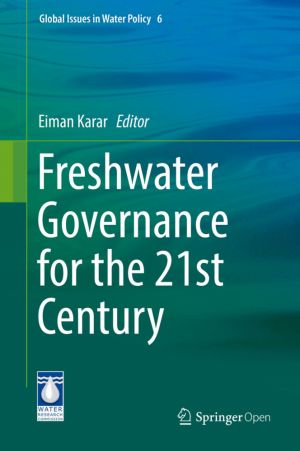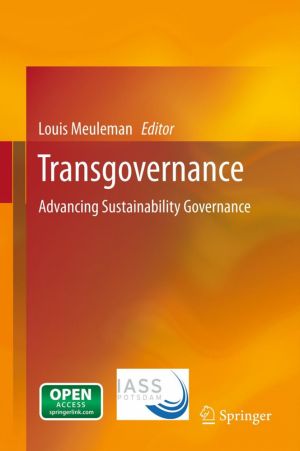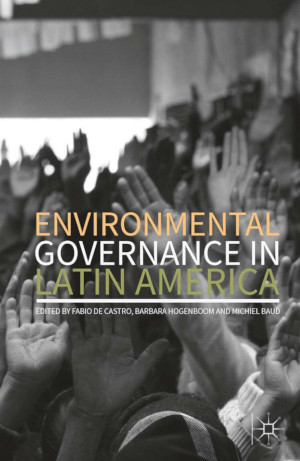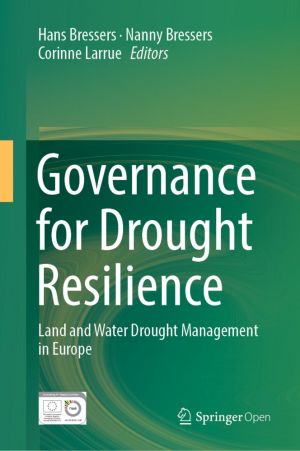Governance for Drought Resilience
Land and Water Drought Management in Europe
by Hans Bressers, Nanny Bressers, Corinne Larrue
DescriptionDetailsHashtagsReport an issue 






Book Description
This book presents the findings of a team of scientists and practitioners who have been working on the project "Benefits of Governance in Drought Adaptation" (in short: the DROP project), which is included in the European Union's INTERREG IVB NWE programme. The DROP governance team developed a Governance Assessment Tool (GAT), which allows the governance setting of a given region for planning and realizing drought adaptation measures to be assessed. Based on this assessment, recommendations can be developed for regional water authorities concerning how to operate most effectively towards increased drought resilience in this context. The GAT has been applied to six regions in Northwest Europe: Twente and Salland in the Netherlands, Eifel-Ruhr in Germany, Brittany in France, Somerset in the United Kingdom, and Flanders in Belgium. These regions are subject to drought aspects related to nature, agriculture and freshwater. This book will aid regional water authorities and other relevant stakeholders interested in governance assessment, whether that context is about water, more specifically about drought or flooding events, or other environmental issues. Further, the GAT can and has also been applied more broadly to a range of governance contexts for water management and beyond.This open book is licensed under a Creative Commons License (CC BY-NC). You can download Governance for Drought Resilience ebook for free in PDF format (7.8 MB).
Book Details
Title
Governance for Drought Resilience
Publisher
Springer
Published
2016
Pages
266
Edition
1
Language
English
ISBN13
9783319296692
ISBN10
3319296698
ISBN13 Digital
9783319296715
ISBN10 Digital
331929671X
PDF Size
7.8 MB
License

Related Books

This open book focuses on theoretical and empirical intersections between governance, knowledge and space from an interdisciplinary perspective. The contributions elucidate how knowledge is a prerequisite as well as a driver of governance efficacy, and conversely, how governance affects the creation and use of knowledge and innovation in geographic...

The objective of this book is to broadly illustrate the key aspects of water governance, mapping the spectrum of decision-making from techno-centric and eco-centric approaches, to hybrid concepts and people-centric approaches. Topics covered include the challenges for water-governance models, the polycentric model, the integration challenge, water ...

Resilience has become an important topic on the safety research agenda and in organizational practice. Most empirical work on resilience has been descriptive, identifying characteristics of work and organizing activity which allow organizations to cope with unexpected situations. Fewer studies have developed testable models and theories that can be...

'Transgovernance: Advancing Sustainability Governance' analyses what implications recent and ongoing changes in the relations between politics, science and media – together characterized as the emergence of a knowledge democracy – may have for governance for sustainable development, on global and other levels of societal decision mak...

The multiple purposes of nature - livelihood for communities, revenues for states, commodities for companies, and biodiversity for conservationists - have turned environmental governance in Latin America into a highly contested arena. In such a resource-rich region, unequal power relations, conflicting priorities, and trade-offs among multiple goal...

This book uses a critical sociological perspective to explore contemporary ways of reformulating the governance of crime through genetics. Through the lens of scientific knowledge and genetic technology, Machado and Granja offer a unique perspective on current trends in crime governance. They explore the place and role of genetics in criminal justi...

